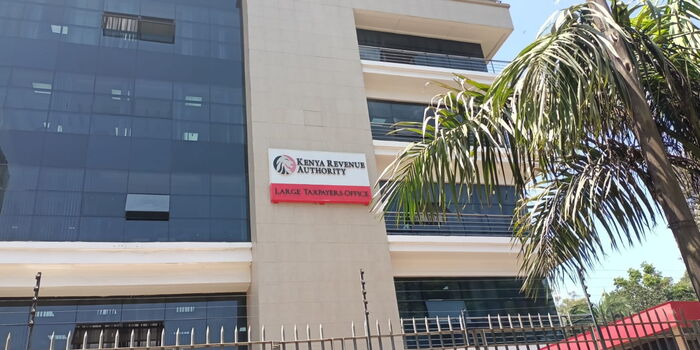Kenya’s trade deficit up by Sh20.7 billion on costly imports

By Alfred Onyango |
Notably, export earnings from tea and horticultural commodities resulted in a 28 per cent increase in merchandise exports during the first quarter of 2024 to Sh298.4 billion.
Kenya's trade deficit, the difference between export earnings and import costs, increased by Sh20.7 billion in the first three months of this year.
Data by the Kenya National Bureau of Statistics (KNBS) shows the balance of payments widened from Sh110.5 billion in the first quarter of 2023 to Sh131.2 billion in the first quarter of 2024.
Keep reading
- Kenya's ICT sector posts 7.8pc growth in Q1 2024, marking first slowdown since Covid
- Domestic earnings up by 19.5%, surge attributed to increase in tea, horticultural exports
- May inflation rises to 5.1 per cent on increased food, electricity prices
- Kenya's refugee numbers climb to 691,868 in 2023, KNBS reports
This is attributable to the higher spending on key imports such as petroleum, industrial machinery and air transport equipment.
Notably, export earnings from tea and horticultural commodities resulted in a 28 per cent increase in merchandise exports during the first quarter of 2024 to Sh298.4 billion.
However, this was not sufficient to reduce the trade deficit which was exacerbated by a 17.9 per cent increase in merchandise imports on a Free On Board (FOB) basis to Sh640.0 billion in the period under review.
FOB is a term used in international shipping and includes delivery costs up to a specified point covered by the seller.
According to KNBS, the growing trade deficit suggests a reduction in the country's ability to create jobs locally and support its currency.
"Net income from services registered a notable decline during the period under review from Sh40.7 billion in the first quarter of 2023 to Sh26.4 billion in the first quarter of 2024. This was observed across exports of the majority of the service categories which declined during the review period," KNBS says in its quarterly Q1 report.
Domestic export earnings increased by 19.5 per cent, but imports grew by 16.0 per cent to Sh684.0 billion in the first quarter of 2024 compared to the same period in 2023.
The rise in exports was mainly driven by tea and horticultural products, which increased by Sh30.6 billion. Other significant exports included articles of apparel, clothing accessories, and essential oils.
However, earnings from titanium ores and concentrates more than halved due to decreased export quantities.
Analysis by Broad Economic Category (BEC) classification, shows commodities under the food and beverage category accounted for the biggest proportion of total revenue from domestic exports in the review period, at 45.6 per cent.
Over the same period, there was a decline in export earnings of primary non-food industrial supplies from Sh23.9 billion in the first quarter of 2023 to Sh21.7 billion in the first quarter of 2024.
In addition to the higher spending on key imports such as petroleum and industrial machinery, there was a notable increase in imports of aircraft, associated equipment and parts, which went up from Sh4.9 billion in the first quarter of 2023 to Sh13.1 billion in the first quarter of 2024.
On the contrary, expenditure on imported chemical fertilisers and unmilled wheat declined from Sh32.1 billion and Sh 26.9 billion in the first quarter of 2023 to Sh9.7 billion and Sh19.3 billion in the first quarter of 2024, respectively.
Under the Broad Economic Category (BEC) classification, non-food industrial supplies continued to account for the largest share of the import bill, with a share of 34.3 per cent in the first quarter of 2024.
Expenditure on commodities under the fuel and lubricants category amounted to Sh173.8 billion, representing an increase of 19.3 per cent from the first quarter of 2023 to account for 25.4 per cent of the total import bill in the review period.
Africa market
Africa remained the largest market for Kenya's exports accounting for 38.3 per cent of total export earnings in the quarter under review.
This was supported by an increase in exports to Egypt (45.7 per cent), the Democratic Republic of Congo (56.0 per cent), Tanzania (18.0 per cent), Uganda (7.4 per cent) and South Sudan (25.7 per cent).
Notably, there were increased domestic exports of tea to Egypt; wheat flour to the Democratic Republic of Congo; carboys, bottles, flasks and similar articles to Uganda; household or laundry-type washing machines to South Sudan; and re-exports of kerosene-type jet fuel to Tanzania.
Revenue from exports to Asia was valued at Sh42.7 billion, representing an increase of 76.4 per cent from the first quarter of 2023.
The improvement was primarily on account of increased exports to Saudi Arabia and the United Arab Emirates, which more than tripled and doubled, respectively.
Specifically, there were increased domestic exports of tea to Saudi Arabia, goat meat to the United Arab Emirates and re-exports of kerosene-type jet fuel to these two countries.
On the contrary, exports to Iran declined by 45.5 per cent, resulting from decreased exports of tea to this destination.
In Western Europe, earnings from exports to the European Union (EU) went up by 39.9 per cent in the quarter under review compared to the first quarter of 2023.
The growth was largely driven by an increase in domestic exports of cut flowers and avocados; and re-exports of kerosene-type jet fuel to the Netherlands.
Similarly, revenue from exports to the United Kingdom rose from Sh13.5 billion in the first quarter of 2023 to Sh19.0 billion in the first quarter of 2024, on account of increased domestic exports of tea and cut flowers to this country.
Exports to America amounted to Sh23.6 billion, reflecting an increase of 46.7 per cent from the first quarter of 2023.
Remarkably, there were increased re-exports of kerosene-type jet fuel to the USA, which ultimately boosted the foreign exchange earnings from this region.



















